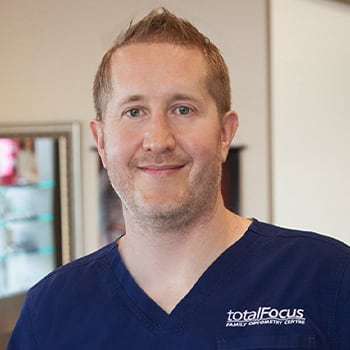Age-related macular degeneration or AMD is the leading cause of loss of vision for people 50 and above. The macula is the small spot near the retina, which is important for sharp, focused, and central vision. It is the most sensitive part of the retina. The macula contains millions of light-sensing cells. When the macula incurs damages, the center field of your view becomes blurry or distorted.
Stages of AMD
AMD varies from people to people. It is possible to have AMD in one eye only and then develop in another in the later stages of AMD. AMD consists of three stages.
Early AMD
Early AMD involves the presence of drusen. Drusen are yellow spots on the retina which you cannot see, but your doctor can easily detect drusen and diagnose early AMD. In early-stages of AMD people do not have vision loss.
Intermediate AMD
The drusen become larger and more colored in the intermediate stage. But the spots are only detected by an eye examination. Some people start having vision loss in this stage while some do not feel any symptoms.
Late AMD
In the last stage of AMD the patient experiences loss of vision. The drusen in the retina may also increase in number. There are two types of Late age-related macular degeneration.
- Geographic Atrophy or wet AMD: The macular cells gradually breakdown in the late stage.
- In neovascular AMD or dry AMD: There is a growth of abnormal blood vessels around the retina that damages the macula. Blood vessels leak the fluid and blood that damage the macula. The damage is severe and rapid than wet AMD. In some cases, both types of AMD can occur in one eye, and any of the symptoms can appear first.
Treatment
The treatment varies in the stages of AMD.
Early AMD: There is no proper treatment for AMD at an early stage. However, you may need to get a comprehensive dilated eye examination after your diagnosis with AMD. To prevent AMD, you must exercise, eat well, and quit smoking if you are a smoker. If you already have AMD, keeping up with these healthy habits would help you keep your vision last longer.
Intermediate and Late AMD:
Researchers at the National Eye Institute have run successful trials for nutritional supplements that can prevent or delay the progression of AMD. These nutritional supplements include Beta carotene, lutein, zeaxanthin, zinc oxide, cupric oxide, vitamin C, and E. Patients with late and Intermediate AMD can supplement from supplements with these ingredients.However, a doctor’s eye examination and prescription is a must before taking the supplements.
Advanced Neurovascular AMD:
Neurovascular AMD is a more severe condition and can result in rapid vision loss. The following treatments can slow down or prevent further loss of vision:
- Injection: Anti-VEGF injections block the growth of abnormal blood vessels around the retina.
- Photodynamic Therapy: Doctors often combine this therapy with injection treatment. It involves injecting a drug verteporfin and laser treatment on the specific areas of the retina.
- Laser Surgery: It is less common than other treatments. Aiming hot laser in the retina destroys abnormal blood vessels. The surgery is complicated and not suitable for everyone.
Bottom Line
Age-related Macular degeneration causes vision loss and is incurable in most cases. However, healthy eating habits and eye care can prevent AMD, and certain treatment options can slow down its progression.




